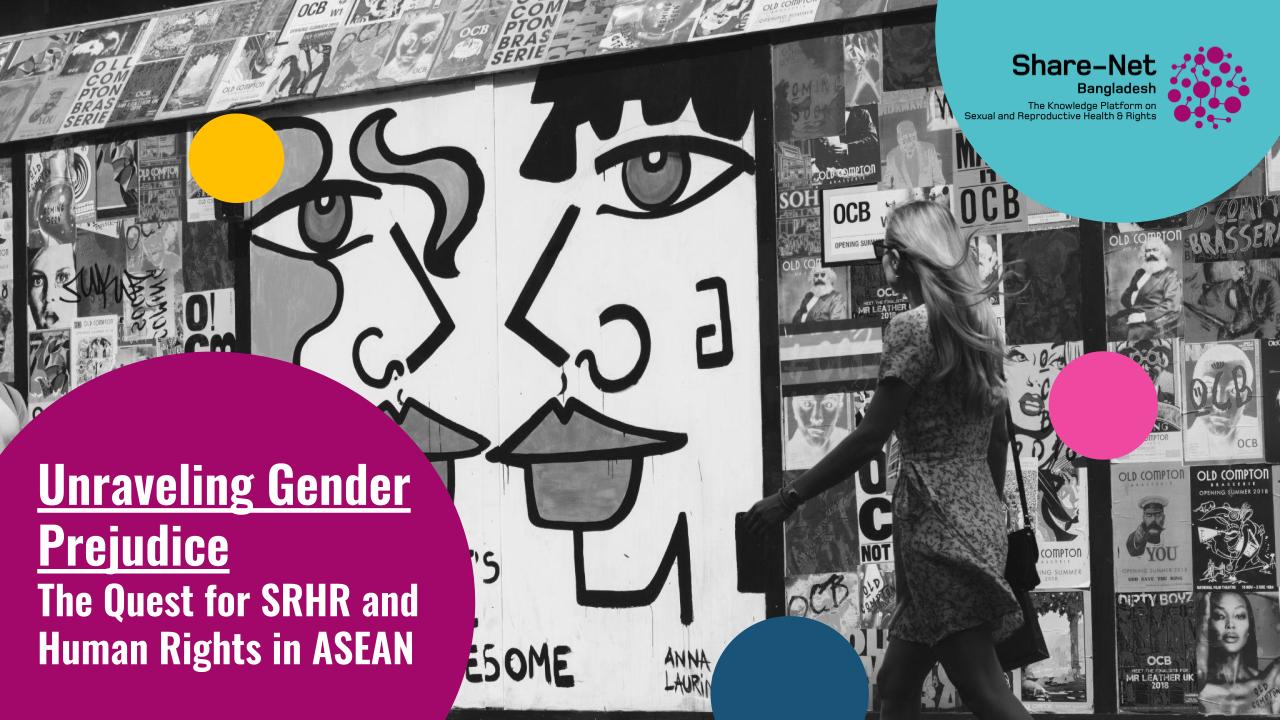Unraveling Prejudice: The Quest for SRHR and Human Rights in ASEAN
Nelson Mandela once said, “To be free is not merely to cast off one’s chains, but to live in a way that respects and enhances the freedom of others.” In a region where diversity is woven into the tapestry of cultures, the recent cancellation and relocation of the ASEAN Queer Advocacy Week in Indonesia come as a stark reminder of the challenges faced by the LGBTQ community. Homosexuality remains legal in most parts of Indonesia, but societal attitudes and conservative pockets continue to hinder the pursuit of equal rights and acceptance for LGBTQ individuals.
The organizers’ decision to move the event outside Indonesia was prompted by a series of security threats from various groups. This disheartening development highlights the persisting discrimination and prejudice that members of the LGBTQ community confront in the world’s most populous Muslim-majority country. In the face of adversity, it becomes evident that the struggle for sexual and reproductive health and rights (SRHR) and human rights is far from over.
The rise of ‘anti-LGBT’ sentiment on social media has created an atmosphere of hostility, making it difficult for activists and advocates to engage in meaningful dialogue and exchange of ideas during the ASEAN Queer Advocacy Week. The fear of violence and intimidation has marred what should have been an opportunity for mutual understanding and progress towards a more inclusive society.
Indonesia’s Indonesian Ulema Council, as one of the country’s most influential Islamic regulatory bodies, publicly opposed the event, citing a contradiction with religious values. Such stances underscore the necessity of bridging the gap between cultural and religious norms and the universal principles of human rights and dignity. Respect for diverse identities and orientations should not be seen as incompatible with religious beliefs but rather as an opportunity to uphold the principles of compassion and understanding that underpin many faiths.
Despite these challenges, the LGBTQ community in Southeast Asia remains resilient, seeking change within their societies and working towards the protection of their rights. It is essential to recognize that the struggle for LGBTQ rights is not merely a matter of sexual orientation but rather a fundamental fight for human rights, ensuring that every individual is treated with respect, dignity, and equality.
Data shows that neighbouring countries in the region also grapple with various degrees of legal restrictions and societal attitudes towards LGBTQ individuals. In Singapore, sex between men is still illegal, while Malaysia imposes punitive measures for sodomy. These examples emphasize the need for continued advocacy to dismantle discriminatory laws and promote a society that embraces diversity.
As the ASEAN Queer Advocacy Week finds a new home beyond Indonesia’s borders, we must collectively reflect on the path ahead. This is an opportunity for governments, religious leaders, and civil society to engage in open dialogue and foster empathy. By doing so, we can work towards creating an environment where all individuals are free from discrimination and violence, and where human rights are upheld, regardless of one’s sexual orientation or gender identity.
Embracing the LGBTQ movement’s calls for sexual and reproductive health and rights is not about promoting a personal agenda but rather about standing up for the shared principles of equality and dignity for all. Let us move forward with compassion and understanding, guided by the belief that everyone deserves a life of freedom and respect. Only then can we truly celebrate the beauty of diversity in our region and beyond.
Source: Prothom Alo


